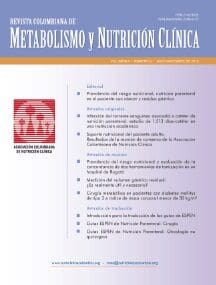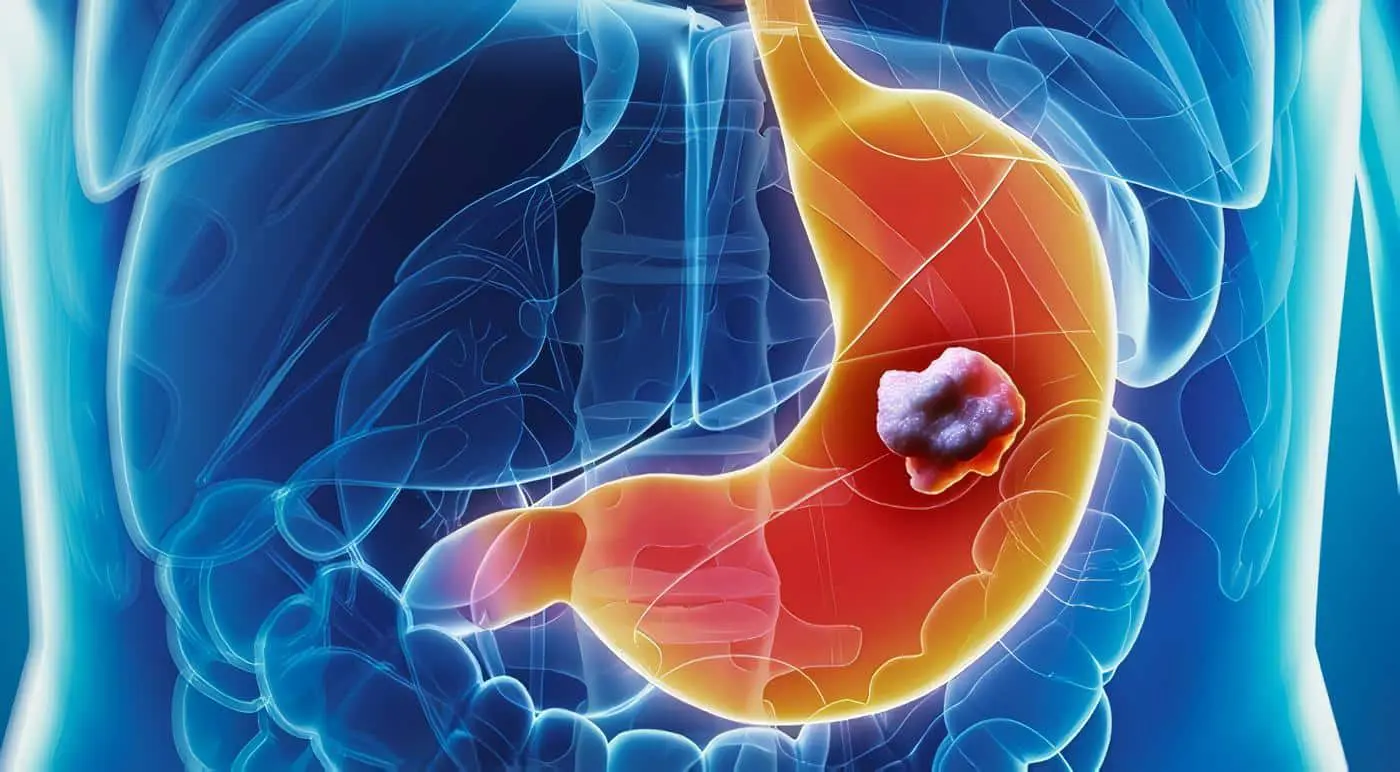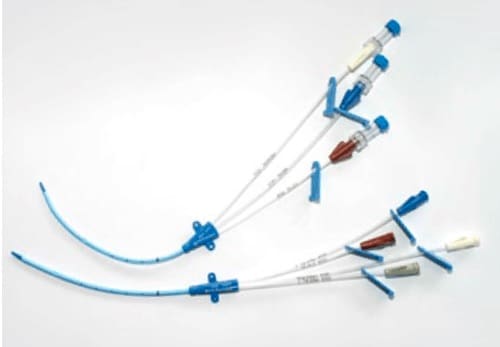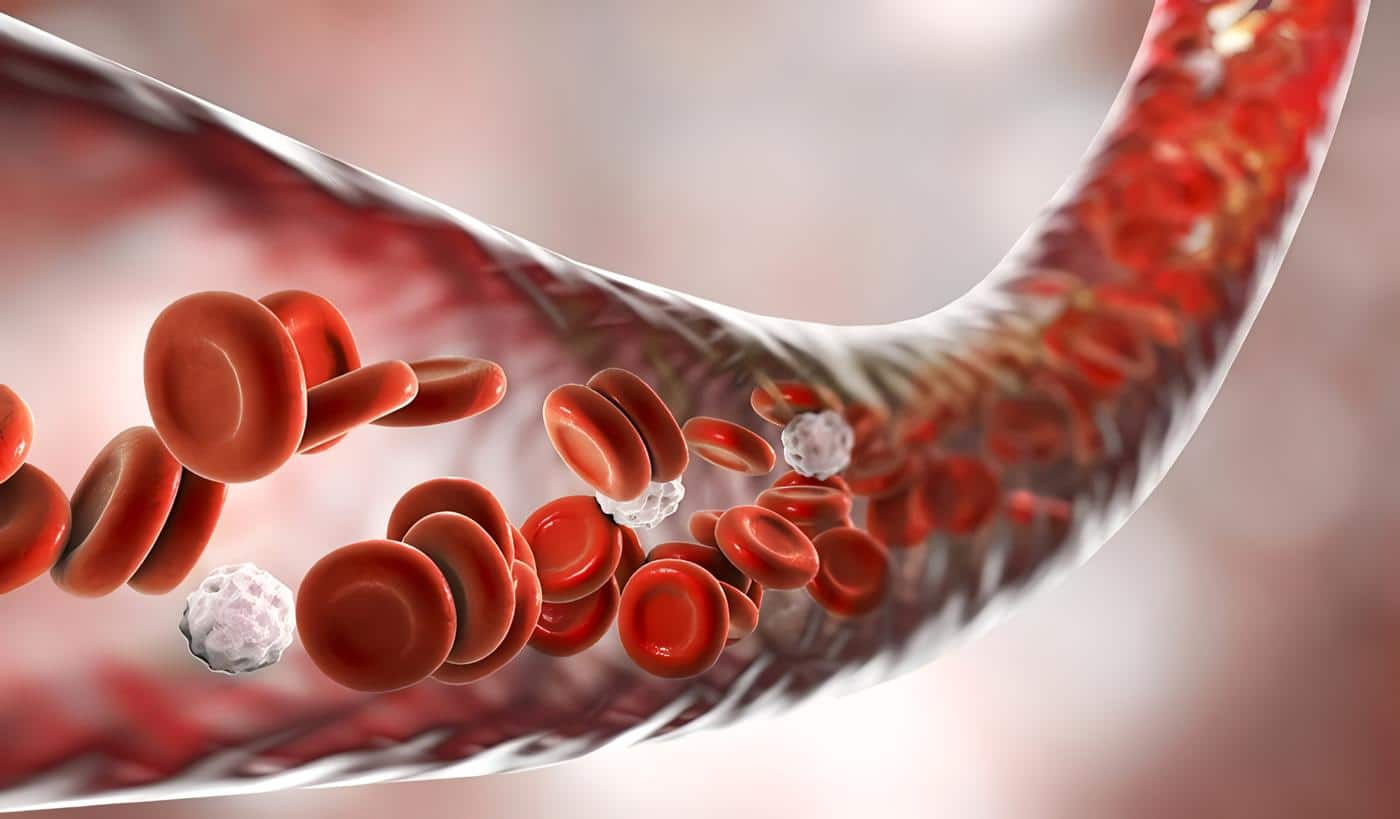¿Es Necesario Retirar Siempre Paulatinamente la NP?
No (Grado A).
Comentarios:
Desde que Dudrick popularizó la NP y hasta hace poco tiempo se recomendaba que la NP fuera disminuida poco a poco antes de retirarla por completo para prevenir la hipoglucemia. Sin embargo, se ha demostrado que aun después de NP prolongada, las células beta permanecen sensibles a los cambios en los niveles de glucosa y que la adaptación de los niveles de glucosa y de la secreción de insulina se hace muy rápidamente153.
Estudios concretos sobre este asunto han mostrado que al ocurrir la suspensión abrupta de la NP que contenga glucosa en cantidad de 3,7 g/kg por día, la glucosa del plasma vuelve a los niveles que tenía antes de la infusión en los siguientes 60 minutos, sin ningún síntoma de hipoglucemia154,155. No hay diferencias en los valores promedio de glucosa o de hormonas claves (como epinefrina, norepinefrina, insulina, glucagón, hormona del crecimiento y cortisol) cuando la suspensión de la NP se hace abruptamente o en forma gradual156.
En un estudio aleatorizado que comparó la suspensión abrupta de la NP con la gradual, no se encontró diferencia en el valor mínimo de glucosa sanguínea. Ninguno de los pacientes tuvo cambios significativos en la escala de valoración de hipoglucemia157.
Conflictos de intereses
Los conflictos de intereses han sido presentados y están archivados en ESPEN (espenjournals@espen.org).
Referencias
- 1. Sagar S, Harland P, Shields R. Early postoperative feeding with elemental diet. BMJ 1979;1:293–5.
- 2. Ryan Jr JA, Page CP, Babcock L. Early postoperative jejunal feeding of elemental diet in gastrointestinal surgery. Am Surg 1981;47:393–403.
- 3. Bastow MD, Rawlings J, Allison SP. Benefits of supplementary tube feeding after fractured neck of femur: a randomised controlled trial. BMJ 1983;287:1589–92.
- 4. Shukla HS, Rao RR, Banu N, Gupta RM, Yadav RC. Enteral hyperalimentation in malnourished surgical patients. Indian J Med Res 1984;80:339–46.
- 5. Bower RH, Talamini MA, Sax HC, Hamilton F, Fischer JE. Postoperative enteral vs parenteral nutrition. A randomized controlled trial. Arch Surg 1986;121:1040–5.
- 6. Moore FA, Moore EE, Jones TN, McCroskey BL, Peterson VM. TEN versus TPN following major abdominal trauma –reduced septic morbidity. J Trauma 1989;29:916–22.
- 7. Delmi M, Rapin CH, Bengoa JM, Delmas PD, Vasey H, Bonjour JP. Dietary supplementation in elderly patients with fractured neck of the femur. Lancet 1990;335:1013–6.
- 8. Schroeder D, Gillanders L, Mahr K, Hill GL. Effects of immediate postoperative enteral nutrition on body composition, muscle function, and wound healing. J Parenter Enteral Nutr 1991;15:376–83.
- 9. Kudsk KA, Croce MA, Fabian TC, Minard G, Tolley EA, Poret HA, et al. Enteral versus parenteral feeding. Effects on septic morbidity after blunt and penetrating abdominal trauma. Ann Surg 1992;215:503–11.
- 10. Meyenfeldt von M, Meijerink W, Roufflart M, Builmaassen M, Soeters P. Perioperativenutritional support: a randomized clinical trial. ClinNutr 1992;11:180–6.
- 11. Iovinelli G, Marsili I, Varrassi G. Nutrition support after total laryngectomy. J Parenter Enteral Nutr 1993;17:445–8.
- 12. Beier-Holgersen R, Boesby S. Influence of postoperative enteral nutrition on postsurgical infections. Gut 1996;39:833–5.
- 13. Baigrie RJ, Devitt PG, Watkin DS. Enteral versus parenteral nutrition after oesophagogastric surgery: a prospective randomized comparison. Aust N Z J Surg 1996;66:668–70.
- 14. Carr CS, Ling KD, Boulos P, Singer M. Randomised trial of safety and efficacy of immediate postoperative enteral feeding in patients undergoing gastrointestinal resection. BMJ 1996;312:869–71.
- 15. Keele AM, Bray MJ, Emery PW, Duncan HD, Silk DB. Two phase randomised controlled clinical trial of postoperative oral dietary supplements in surgical patients. Gut 1997;40:393–9.
- 16. Watters JM, Kirkpatrick SM, Norris SB, Shamji FM, Wells GA. Immediate postoperative enteral feeding results in impaired respiratory mechanics and decreased mobility. Ann Surg 1997;226:369–77.
- 17. Sand J, Luostarinen M, Matikainen M. Enteral or parenteral feeding after total gastrectomy: prospective randomised pilot study. Eur J Surg 1997;163:761–6.
- 18. Singh G, Ram RP, Khanna SK. Early postoperative enteral feeding in patients with nontraumatic intestinal perforation and peritonitis. J Am Coll Surg 1998;187:142–6.
- 19. Braga M, Gianotti L, Gentilini O, Parisi V, Salis C, Di Carlo V. Early postoperative enteral nutrition improves gut oxygenation and reduces costs compared with total parenteral nutrition. Crit Care Med 2001;29:242–8.
- 20. Malhotra A, Mathur AK, Gupta S. Early enteral nutrition after surgical treatment of gut perforations: a prospective randomised study. J Postgrad Med 2004;50:102–6.
- 21. Mack LA, Kaklamanos IG, Livingstone AS, Levi JU, Robinson C, Sleeman D, et al. Gastric decompression and enteral feeding through a double-lumen gastrojejunostomy tube improves outcomes after pancreaticoduodenectomy. Ann Surg 2004;240:845–51.
- 22. Sullivan DH, Nelson CL, Klimberg VS, Bopp MM. Nightly enteral nutrition support of elderly hip fracture patients: a pilot study. J Am Coll Nutr 2004;23:683–91.
- 23. Bozzetti F, Braga M, Gianotti L, Gavazzi C, Mariani L. Postoperative enteral versus parenteral nutrition in malnourished patients with gastrointestinal cancer: a randomised multicentre trial. Lancet 2001;358:1487–92.
- 24. Weimann A, Braga M, Harsanyi L, Laviano A, Ljungqvist O, Soeters P, et al. ESPEN guidelines on enteral nutrition: surgery including organ transplantation. Clin Nutr 2006;26:224–44.
- 25. Simpson F, Doig GS. Parenteral vs. enteral nutrition in the critically ill patient: a meta-analysis of trials using the intention to treat principle. Intensive Care Med 2005;31:12–23.
- 26. Fearon KC, Ljungqvist O, Von Meyenfeldt M, Revhaug A, Dejong CH, Lassen K, et al. Enhanced recovery after surgery: a consensus review of clinical care for patients undergoing colonic resection. Clin Nutr 2005;24:466–77.
- 27. Lobo DN, Bostock KA, Neal KR, Perkins AC, Rowlands BJ, Allison SP. Effect of salt and water balance on recovery of gastrointestinal function after elective colonic resection: a randomised controlled trial. Lancet 2002;359:1812–8.
- 28. Noblett SE, Snowden CP, Shenton BK, Horgan AF. Randomized clinical trial assessing the effect of Doppleroptimized fluid management on outcome after elective colorectal resection. Br J Surg 2006;93:1069–76.
- 29. MacKay G, Fearon K, Mc Connachie A, Serpell MG, Molloy RG, O’Dwier PJ. Randomized clinical trial of the effect of postoperative intravenous fluid restriction on recovery after elective colorectal surgery. Br J Surg 2006;93:1469–74.
- 30. Kehlet H. Multimodal approach to control postoperative pathophysiology and rehabilitation. Br J Anaesth 1997;78:606–17.
- 31. Maltby JRYP. Fasting from midnight – the history behind the dogma. Best Pract Res Clin Anaesthesiol 2006;20:363–78.
- 32. Brady M, Kinn S, Stuart P. Preoperative fasting for adults to prevent perioperative complications. Cochrane Database Syst Rev 2003;4: CD004423.
- 33. Ljungqvist O, Soreide E. Preoperative fasting. Br J Surg 2003;90:400–6.
- 34. Ljungqvist O, Nygren J, Thorell A. Modulation of post-operative insulin resistance by pre-operative carbohydrate loading. Proc Nutr Soc 2002;61:329–36.
- 35. Crowe PJ, Dennison A, Royle GT. The effect of pre-operative glucose loading on postoperative nitrogen metabolism. Br J Surg 1984;71:635–7.
- 36. Yuill KA, Richardson RA, Davidson HI. The administration of an oral carbohydrate-containing fluid prior to major elective upper-gastrointestinal surgery preserves skeletal muscle mass postoperatively – a randomized clinical trial. Clin Nutr 2005;24:32–7.
- 37. Henriksen MG, Hessov I, Dela F, Hansen HV, Haraldsted V, Rodt SA. Effects of preoperative oral carbohydrates andpeptides on postoperative endocrine response, mobilization, nutrition and muscle function in abdominal surgery. Acta Anaesthesiol Scand 2003;47:191–9.
- 38. Ljungqvist O. Preoperative nutrition – elective surgery in the fed or the overnight fasted state. Clin Nutr 2001;20(Suppl. 1):167–71.
- 39. Noblett SE, Watson DS, Huong H, Davison B, Hainsworth PJ, Horgan AF. Preoperative oral carbohydrate loading in colorectal surgery: a randomized controlled trial. Colorectal Dis 2006;8:563–9.
- 40. Wanten GJ, Calder PC. Immune modulation by parenteral lipid emulsions. Am J Clin Nutr 2007;85:1171–84.
- 41. Vanhorebeek I, Langouche L, Van den Berghe G. Tight blood glucose control: what is the evidence? Crit Care Med 2007;35:S496–502.
- 42. Griesdale DE, de Souza RJ, van Dam RM, Heyland DK, Cook DJ, Malhotra A, et al. Intensive insulin therapy and mortality among critically ill patients: a meta-analysis including NICESUGAR study data. CMAJ 2009;180(8):821–7. discussion 799–800.
- 43. Velanovich V. The value of routine preoperative laboratory testing in predicting postoperative complications: a multivariate analysis. Surgery 1991;109:236–43.
- 44. Engelman DT, Adams DH, Byrne JG, Aranki SF, Collins Jr JJ, Couper GS, et al. Impact of body mass index and albumin on morbidity and mortality after cardiac surgery. J Thorac Cardiovasc Surg 1999;118:866–73.
- 45. Kama NA, Coskun T, Yuksek YN, Yazgan A. Factors affecting post-operative mortality in malignant biliary tract obstruction. Hepatogastroenterology 1999;46:103–7.
- 46. Koval KJ,Maurer SG, Su ET, Aharonoff GB, Zuckerman JD. The effects of nutritional status on outcome after hip fracture. J Orthop Trauma 1999;13:164–9.
- 47. van Bokhorst-de van der Schueren MA, van Leeuwen PA, Sauerwein HP, Kuik DJ, Snow GB, Quak JJ. Assessment of malnutrition parameters in head and neck cancer and their relation to postoperative complications. Head Neck 1997;19:419–25.
- 48. Dannhauser A, Van Zyl JM, Nel CJ. Preoperative nutritional status and prognostic nutritional index in patients with benign disease undergoing abdominal operations – Part I. J Am Coll Nutr 1995;14:80–90.
- 49. Jagoe RT, Goodship TH, Gibson GJ. The influence of nutritional status on complications after operations for lung cancer. Ann Thorac Surg 2001;71: 936–43.
- 50. Mazolewski P, Turner JF, Baker M, Kurtz T, Little AG. The impact of nutritional status on the outcome of lung volume reduction surgery: a prospective study. Chest 1999;116:693–6.
- 51. van Bokhorst-de van der Schuer, van Leeuwen PA, Kuik DJ, Klop WM, Sauerwein HP, Snow GB, et al. The impact of nutritional status on the prognoses of patients with advanced head and neck cancer. Cancer 1999;86: 519–27.
- 52. Lavernia CJ, Sierra RJ, Baerga L. Nutritional parameters and short term outcome in arthroplasty. J Am Coll Nutr 1999;18:274–8.
- 53. Patterson BM, Cornell CN, Carbone B, Levine B, Chapman D. Protein depletion and metabolic stress in elderly patients who have a fracture of the hip. J Bone Joint Surg Am 1992;74:251–60.
- 54. Rey-Ferro M, Castano R, Orozco O, Serna A, Moreno A. Nutritional and immunologic evaluation of patients with gastric cancer before and after surgery. Nutrition 1997;13:878–81.
- 55. Guo CB, Ma DQ, Zhang KH. Applicability of the general nutritional statu score to patients with oral and maxillofacial malignancies. Int J Oral Maxillofac Surg 1994;23:167–9.
- 56. Guo CB, Zhang W, Ma DQ, Zhang KH, Huang JQ. Hand grip strength: an indicator of nutritional state and the mix of postoperative complications in patients with oral and maxillofacial cancers. Br J Oral Maxillofac Surg 1996;34:325–7.
- 57. Pedersen NW, Pedersen D. Nutrition as a prognostic indicatorin amputations. A prospective study of 47 cases. Acta Orthop Scand 1992;63:675–8.
- 58. Mohler JL, Flanigan RC. The effect of nutritional status and support on morbidity and mortality of bladder cancer patients treated by radical cystectomy. J Urol 1987;137:404–7.
- 59. Malone DL, Genuit T, Tracy JK, Gannon C, Napolitano LM. Surgical site infections: reanalysis of risk factors. J Surg Res 2002;103:89–95.
- 60. Sandstrom R, Drott C, Hyltander A, Arfvidsson B, Schersten T, Wickstrom I, et al. The effect of postoperative intravenous feeding (TPN) on outcome following major surgery evaluated in a randomized study. Ann Surg 1993;217:185–95.
- 61. Correia MI, CaiaffaWT, da Silva AL,Waitzberg DL. Risk factors for malnutrition in patients undergoing gastroenterological and hernia surgery: an analysis of 374 patients. Nutr Hosp 2001;16:59–64.
- 62. Durkin MT, Mercer KG, McNulty MF, Phipps L, Upperton J, Giles M, et al. Vascular Surgical Society of Great Britain and Ireland: contribution of malnutrition to postoperative morbidity in vascular surgical patients. Br J Surg 1999;86:702–5.
- 63. Butters M, Straub M, Kraft K, Bittner R. Studies on nutritional status in general surgery patients by clinical, anthropometric, and laboratory parameters. Nutrition 1996;12:405–10.
- 64. Lumbers M, New SA, Gibson S, Murphy MC. Nutritional status in elderly female hip fracture patients: comparison with an age-matched home living group attending day centres. Br J Nutr 2001;85:733–40.
- 65. Haugen M, Homme KA, Reigstad A, Teigland J. Assessment of nutritional status in patients with rheumatoid arthritis and osteoarthritis undergoing joint replacement surgery. Arthritis Care Res 1999;12:26–32.
- 66. Saito T, Kuwahara A, Shigemitsu Y, Kinoshita T, Shimoda K, Miyahara M, et al. Factors related to malnutrition in patients with esophageal cancer. Nutrition 1991;7:117–21.
- 67. Bollschweiler E, Schroder W, Holscher AH, Siewert JR. Preoperative risk analysis in patients with adenocarcinoma or squamous cell carcinoma of the oesophagus. Br J Surg 2000;87:1106–10.
- 68. Takagi K, Yamamori H, Morishima Y, Toyoda Y, Nakajima N, Tashiro T. Preoperative immunosuppression: its relationship with high morbidity and mortality in patients receiving thoracic esophagectomy. Nutrition 2001;17:13–7.
- 69. Padillo FJ, Andicoberry B, Muntane J, Lozano JM, Mino G, Sitges-Serra A, et al. Factors predicting nutritional derangements in patients with obstructive jaundice: multivariate analysis. World J Surg 2001;25:413–8.
- 70. Khuri SF, Daley J, Henderson W, Hur K, Gibbs JO, Barbour G, et al. Risk adjustment of the postoperative mortality rate for the comparative assessment of the quality of surgical care: results of the National Veterans Affairs Surgical Risk Study. J Am Coll Surg 1997;185:315–27.
- 71. The Veterans Affairs Total Parenteral Nutrition Cooperative Study Group. Perioperative total parenteral nutrition in surgical patients. N Engl J Med 1991;325:525–32.
- 72. Detsky AS, Baker JP, O’Rourke K, Goel V. Perioperative parenteral nutrition: a meta-analysis. Ann Intern Med 1987;107:195–203.
- 73. Bozzetti F, Gavazzi C, Miceli R, Rossi N, Mariani L, Cozzaglio L, et al. Perioperative total parenteral nutrition in malnourished gastrointestinal cancer patients: a randomized clinical trial. J Parenter Enteral Nutr 2000;24:7–14.
- 74. Braga M, Gianotti L, Radaelli G, Vignali A, Mari G, GentiliniO, et al. Perioperative immunonutrition in patients undergoing cancer surgery: results of a randomized double-blind phase 3 trial. Arch Surg 1999;134:428–33.
- 75. Senkal M, Zumtobel V, Bauer KH, Marpe B, Wolfram G, Frei A, et al. Outcome and cost-effectiveness of perioperative enteral immunonutrition in patients undergoing elective upper gastrointestinal tract surgery: a prospective randomized study. Arch Surg 1999;134:1309–16.
- 76. Tepaske R, Velthuis H, Oudemans-van Straaten HM, Heisterkamp SH, van Deventer SJ, Ince C, et al. Effect of preoperative oral immune-enhancing nutritional supplement on patients at high risk of infection after cardiac surgery: a randomised placebo controlled trial. Lancet 2001;358:696–701.
- 77. Braga M, Gianotti L, Vignali A, Carlo VD. Preoperative oral arginine and n-3 fatty acid supplementation improves the immunometabolic host response and outcome after colorectal resection for cancer. Surgery 2002;132:805–14.
- 78. Braga M, Gianotti L, Nespoli L, Radaelli G, Di Carlo V. Nutritional approach in malnourished surgical patients: a prospective randomized study. Arch Surg 2002;137:174–80.
- 79. Gianotti L, Braga M, Nespoli L, Radaelli G, Beneduce A, Di Carlo V. A randomized controlled trial of preoperative oral supplementation with a specialized diet in patients with gastrointestinal cancer. Gastroenterology 2002;122:1763–70.
- 80. Braga M, Gianotti L. Preoperative immunonutrition: cost–benefit analysis. J Parenter Enteral Nutr 2005;29:S57–61.
- 81. Bozzetti F, Gianotti L, Braga M, Di Carlo V, Mariani L. Postoperative complications in gastrointestinal cancer patients: the joint role of the nutritional status and the nutritional support. Clin Nutr 2007;26:698–709.
- 82. Snyderman CH, Kachman K, Molseed L,Wagner R, D’Amico F, Bumpous J, et al. Reduced postoperation infections with an immune-enhancing nutritional supplement. Laryngoscope 1999;109:915–21.
- 83. Linn BS, Robinson DS, Klimas NG. Effects of age and nutritionalstatus on surgical outcomes in head and neck cancer. Ann Surg 1988;207:267–73.
- 84. Kornowski A, Cosnes J, Gendre JP, Quintrec Y. Enteral nutrition in malnutrition following gastric resection and cephalic pancreaticoduodenectomy. Hepatogastroenterology 1992;39:9–13.
- 85. Velez JP, Lince LF, Restrepo JI. Early enteral nutrition in gastrointestinal surgery: a pilot study. Nutrition 1997;13:442–5.
- 86. Hedberg AM, Lairson DR, Aday LA, Chow J, Suki R, Houston S, et al. Economic implications of an early postoperative enteral feeding protocol. J Am Diet Assoc 1999;99:802–7.
- 87. Hamaoui E, Lefkowitz R, Olender L, Krasnopolsky-Levine E, Favale M, Webb H, et al. Enteral nutrition in the early postoperative period: a new semielemental formula versus total parenteral nutrition. J Parenter Enteral Nutr 1990;14:501–7.
- 88. Moore FA, Feliciano DV, Andrassy RJ, McArdle AH, Booth FV, Morgenstein- Wagner TB, et al. Early enteral feeding, compared with parenteral, reduces postoperative septic complications. The results of a meta-analysis. Ann Surg 1992;216:172–83.
- 89. Mochizuki H, Togo S, Tanaka K, Endo I, Shimada H. Early enteral nutrition after hepatectomy to prevent postoperative infection. Hepatogastroenterology 2000;47:1407–10.
- 90. Shaw-Stiffel TA, Zarny LA, Pleban WE, Rosman DD, Rudolph RA, Bernstein LH. Effect of nutrition status and other factors on length of hospital stay after major gastrointestinal surgery. Nutrition 1993;9:140–5.
- 91. Neumayer LA, Smout RJ, Horn HG, Horn SD. Early and sufficient feeding reduces length of stay and charges in surgical patients. J Surg Res 2001;95: 73–7.
- 92. Bruning PF, Halling A, Hilgers FJ, Kappner G, Poelhuis EK, Kobashi-Schoot AM, et al. Postoperative nasogastric tube feeding in patients with head and neck cancer: a prospective assessment of nutritional status and well-being. Eur J Cancer Clin Oncol 1988;24:181–8.
- 93. Hammerlid E, Wirblad B, Sandin C, Mercke C, Edstrom S, Kaasa S, et al. Malnutrition and food intake in relation to quality of life in head and neck cancer patients. Head Neck 1998;20:540–8.
- 94. ASPEN Board of Directors and the Clinical Guidelines Task Force. Guidelines for the use of parenteral and enteral nutrition in adult and pediatric patients. J Parenter Enteral Nutr 2002;26:1SA–138SA.
- 95. Breuer JP, von Dossow V, von Heymann C, Griesbach M, von Schickfus M, Mackh E, et al. Preoperative oral carbohydrate administration to ASA III-IV patients undergoing elective cardiac surgery. Anesth Analg 2006;103:1099–108.
- 96. Lolley DM, Myers WO, Ray JF, Sautter RD, Tewksbury DA. Clinical experience with preoperative myocardial nutrition management. J Cardiovasc Surg (Torino) 1985;26:236–43.
- 97. Lazar H, Phillippides G, Fitzgerald C, Lancaster D, SheminRJ, Apstein C, et al. Glucose–insulin–potassium solutions enhance recovery after urgent coronary artery bypass grafting. J Thorac Cardiovasc Surg 1997;113:354–60 [discussion 360–2].
- 98. Oldfield GS, Commerford PJ, Opie LH. Effects of preoperative glucose – insulin–potassium on myocardial glycogen levels and on complications of mitral valve replacement. J Thorac Cardiovasc Surg 1986;91:874–8.
- 99. Nygren J, Thorell A, Jacobsson H, Larsson S, Schnell PO, Hylen L, et al. Preoperative gastric emptying. Effects of anxiety and oral carbohydrate administration. Ann Surg 1995;222:728–34.
- 100. Wolfe RR, Allsop JR, Burke JF. Glucose metabolism in man: responses to intravenous glucose infusion. Metabolism 1979;28:210–20.
- 101. Ljungqvist O, et al. Perioperative nutrition therapy – novel developments. Scand J Nutr 2000;44:3–7.
- 102. Ljungqvist O, Nygren J, Thorell A. Insulin resistance and elective surgery. Surgery 2000;128:757–60.
- 103. Ljungqvist O. To fast or not to fast? Metabolic preparation for elective surgery. Scand J Nutr 2004;48:77–82.
- 104. Ljungqvist O, Nygren J, Soop M, Thorell A. Metabolic perioperative management: novel concepts. Curr Opin Crit Care 2005;11:295–9.
- 105. Ljungqvist O. To fast or not to fast before surgical stress. Nutrition 2005;21:885–6.
- 106. Nygren J, Thorell A, Ljungqvist O. Preoperative oral carbohydrate nutrition: an update. Curr Opin Clin Nutr Metab Care 2001;4:255–9.
- 107. Nygren J, Thorell A, Ljungqvist O. New developments facilitating nutritionalintake after gastrointestinal surgery. Curr Opin Clin Nutr Metab Care 2003;6:593–7.
- 108. Soop M, Nygren J, Ljungqvist O. Optimizing perioperative management of patients undergoing colorectal surgery: what is new? Curr Opin Crit Care 2006;12:166–70.
- 109. Soop M, Carlson GL, Hopkinson J, Clarke S, Thorell A, Nygren J, et al. Randomized clinical trial of the effects of immediate enteral nutrition on metabolic responses to major colorectal surgery in an enhanced recovery protocol. Br J Surg 2004;91:1138–45.
- 110. Chiolero R, Revelly JP, Tappy L. Energy metabolism in sepsis and injury. Nutrition 1997;13(Suppl. 9):45S–51S.
111. Reid CL. Nutritional requirements of surgical and critically-ill patients: do we really know what they need? Proc Nutr Soc 2004;63:467–72. - 112. Zauner A, Schneeweiss B, Kneidinger N, Lindner G, Zauner C. Weight- adjusted resting energy expenditure is not constant in critically ill patients. Intensive Care Med 2006;32:428–34.
- 113. Kan MN, Chang HH, Sheu WF, Cheng CH, Lee BJ, Huang YC. Estimation of energy requirements for mechanically ventilated, critically ill patients using nutritional status. Crit Care 2003;7:R108–15.
- 114. Berger MM, Binnert C, Chiolero R, Reeves C, Revelly JP, Cayeux MC, et al. Trace element supplementation after major burns modulates antioxidant status and clinical course by way of increased tissue trace element concentrations. Am J Clin Nutr 2007;85:1293–300.
- 115. Chiolero R, Schutz Y, Lemarchand T, Felber JP, de Tribolet N, Freeman J. Hormonal and metabolic changes following severe head injury or noncranial injury. J Parenter Enteral Nutr 1989;13:5–12.
- 116. Chiolero RL, Breitenstein E, Thorin D, Christin L, de Tribolet N, Freeman J, et al. Effects of propranolol on resting metabolic rate after severe head injury. Crit Care Med 1989;17:328–34.
- 117. Alexander JW, Gonce SJ, Miskell PW, Peck MD, Sax H. A newmodel for studying nutrition in peritonitis. The adverse effect of overfeeding. Ann Surg 1989;209:334–40.
- 118. McClave SA, Lowen CC, Kleber MJ, Nicholson JF, Jimmerson SC, McConnell JW, Jung LY, et al. Are patients fed appropria tely according to their caloric requirements? J Parenter Enteral Nutr 1998;22:375–81.
- 119. Muller TF, Muller A, Bachem MG, Lange H. Immediate metabolic effects of different nutritional regimens in critically ill medical patients. Intensive Care Med 1995;21:561–6.
- 120. Liposky JM, Nelson LD. Ventilatory response to high caloric loads in critically ill patients. Crit Care Med 1994;22:796–802.
- 121. Patin˜o J, de Pimiento SK, Vergara A, Savino P, Rodriguez M, Escallon J. Hypocaloric support in the critically ill. World J Surg 1999;23:553–9.
- 122. Quigley EM, Marsh MN, Shaffer JL, Markin RS. Hepatobiliary complications of total parenteral nutrition. Gastroenterology 1993;104:286–301.
- 123. van Nieuwerk CM, Groen AK, Ottenhoff R, et al. The role of bile salt composition in liver pathology of mdr2 (_/_) mice: differences between males and females. J Hepatol 1997;26:138–45.
- 124. Ishibashi N, Plank LD, Sando K, Hill GL. Optimal protein requirements during the first 2 weeks after the onset of critical illness. Crit Care Med 1998;26:1529–35.
- 125. Scheinkestel CD, Kar L, Marshall K, Bailey M, Davies A, Nyulasi I, et al. Prospective randomized trial to assess caloric and protein needs of critically Ill, anuric, ventilated patients requiring continuous renal replacement therapy. Nutrition 2003;19:909–16.
- 126. Wolfe R, Goodenough RD, Burke JF, Wolfe MH. Response of protein and urea kinetics in burn patients to different levels of protein intake. Ann Surg 1983;197:163–71.
- 127. Hart DW, Wolf SE, Chinkes DL, , et alRamzy PI, Obeng MK, Ferrando AA, Wolfe RR. Persistence of muscle catabolism after severe burn. Surgery 2000;128:312–9.
- 128. Hulsewe KW, Deutz NE, de Blaauw I, van der Hulst RR, von Meyenfeldt MM, Soeters PB, et al. Liver protein and glutamine metabolism during cachexia. Proc Nutr Soc 1997;56:801–6.
- 129. Wirtitsch M, Wessner B, Spittler A, Roth E, Volk T, Bachmann L, Hiesmayr M. Effect of different lipid emulsions on the immunologic function in humans: a systematic review with meta-analysis. Clin Nutr 2007;26:302–13.
- 130. Druml W. Nutritional management of acute renal failure. Am J Kidney Dis 2001;37(Suppl. 2):S89–94.
- 131. Mortelmans AK, Duym P, Vandenbroucke J, De Smet R, Dhondt A, Lesaffer G, et al. Intradialytic parenteral nutrition in malnourished hemodialysis patients: a prospective longterm study. J Parenter Enteral Nutr 1999;23:90–5.
- 132. Plauth M, Cabre E, Riggio O, et al, ESPEN Consensus Group. ESPEN guidelines for nutrition in liver disease and transplantation. Clin Nutr 1997;16:43–55.
- 133. Heyland DK, Montalvo M, MacDonald S, Keefe L, Su XY, Drover JW. Total parenteral nutrition in the surgical patient: a meta-analysis. Can J Surg 2001;44:102–11.
- 134. Wanten G. An update on parenteral lipids and immune function: only smoke, or is there any fire? Curr Opin Nutr Metab Care 2006;9:79–83.
- 135. Gadek JE, DeMichele SJ, Karlstad MD, Pacht ER, Donahoe M, Albertson TE, et l. Effect of enteral feeding with eicosapentaenoic acid, gamma-linolenic acid, and antioxidants in patients with acute respiratory distress syndrome. Enteral Nutrition in ARDS Study Group. Crit Care Med 1999;27:1409–20.
- 136. Singer P, Theilla M, Fisher H, Gibstein L, Grozovski E, Cohen J. Benefit of an enteral diet enriched with eicosapentaenoic acid and gamma-linolenic acid in ventilated patients with acute lung injury. Crit Care Med 2006;34:1033–8.
- 137. Pontes-Arruda A, Arago AM, Albuquerque JD. Effects of enteral feeding with eicosapentaenoic acid, gamma-linolenic acid, and antioxidants in mechanically ventilated patients with severe sepsis and septic shock. Crit Care Med 2006;34:2325–33.
- 138. Pluess TT, Hoyoz D, Berger MM, Tappy L, Revelly JP, Michaeli B, et al. Intravenous fish oil blunts the physiological response to endotoxin in healthy subjects. Intensive Care Med 2007;33:789–97.
- 139. Heller AR, Rossler S, Litz RJ, Stehr SN, Heller SC, Koch R, et al. Omega-3 fatty acids improve the dianoses-related clinical outcome. Crit Care Med 2006;34:972–9.
- 140. Wichmann MW, Thul P, Czarnetzki HD, et al. Evaluation of clinical safety and beneficial effects of a fish oil containing lipid emulsion (Lipoplus, MLF541): data from a prospective, randomized, multicentre trial. Crit Care Med 2007;35:700–6.
- 141. van der Hulst R, can Kreel BK, von Meyenfeldt MF, Morlion BJ, Kemen M, Jauch KW. The role of parenteral glutamine administration in preserving gut integrity. Lancet 1993;334:1363–5.
- 142. O’Riordain MG, Fearon KC, Ross JA, Rogers P, Falconer JS, Bartolo DC, et al. Glutamine-supplemented total parenteral nutrition enhances T- lymphocyte response in surgical patients undergoing colorectal resection. Ann Surg 1994;220:212–21.
- 143. Zheng YM, Li F, Zhang MM, Wu XT. Glutamine dipeptide for parenteral nutrition in abdominal surgery; a meta-analysis of randomized controlled trials. World J Gastroenterol 2006;12:7537–41.
- 144. Gianotti L, Braga M, Bozzetti F. Perioperative intravenous glutamine supplementation in major abdominal surgery: a randomised multicentre trial. Abstract presented at the ASPEN Meeting, New Orleans 2009.
- 145. Heyland DK, Dhaliwal R, Day AG, Muscedere J, Drover J,Suchner U, Cook D. Reducing deaths due to oxidative stress (The REDOX Study): rationale and study design for a randomized trial of glutamine and antioxidant supplementation in critically-ill patients. Proc Nutr Soc 2006;65:250–63.
- 146. Heys SD, Walker LG, Smith I, Eremin O. Enteral nutritional supplementation with key nutrients in patients with critical illness and cancer: a meta-analysis of randomized controlled clinical trials. Ann Surg 1999;229:467–77.
- 147. Luiking YC, Deutz NE. Exogenous arginine in sepsis. Crit Care Med 2007;35:S557–63.
- 148. Baines M, Shenkin A. Lack of effectiveness of short-term intravenous micronutrient nutrition in restoring plasma antioxidant status after surgery. Clin Nutr 2002;21:145–50.
- 149. Mirtallo J, Canada T, Johnson D, Kumpf V, Petersen C, Sacks G, et al. Task force for the revision of safe practices for parenteral nutrition: safe practices for parenteral nutrition. J Parenter Enteral Nutr 2004;29:S39–70.
- 150. Mu¨ hlho¨ fer A, Biesalski HK, Persson PB, Bo¨ hles HJ, Bischoff SC. DGEM-Leitlinie Parenterale Erna¨hrung – Wasser, Elektrolyte, Vitamine und Spurenelemente. Aktuel Ernaehr Med (in press).
- 151. Berger MM, Shenkin A. Vitamins and trace elements: practical aspects of supplementation. Nutrition 2006;22:952–5.
- 152. Food and Drug Administration (FDA). parenteral multivitamin products; drugs for human use; drug efficacy study implementation; amendment. Federal Register 2000;65:21200–1.
- 153. Sanderson I, Deitel M. Insulin response in patients receivingconcentrated infusions of glucose and casein hydrolysate for complete parenteral nutrition. Ann Surg 1986;204:524–9.
- 154. Krzywda E, Andris D, Whipple JK, Street CC, Ausman RK,Schulte WJ, et al. Glucose response to abrupt initiation and discontinuation of total parenteral nutrition. J Parenter Enteral Nutr 1993;17:65–7.
- 155. Wagman LD, Newsome HH, Miller KB, Thomas RB,Weir GC. The effect of acute discontinuation of total parenteral nutrition. Ann Surg 1986;204:524–9.
- 156. Eisenberg PG, Gianino S, Clutter WE, Fleshman JW. Abrupt discontinuation of cycled parenteral nutrition is safe. Dis Colon Rectum 1995;38:933–9.
- 157. Nirula R, Yamada K, Waxman K. The effect of abrupt cessation of total parenteral nutrition on serum glucose: a randomized trial. Am Surg 2000;66: 866–9.
Correspondencia:
Correo electrónico: espenjournal@espen.org






